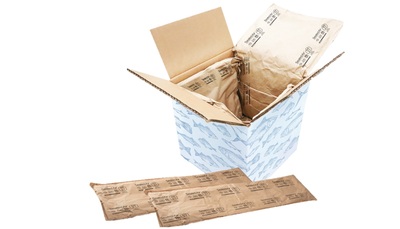Avoid leaving a bitter aftertaste

COVID-19 restrictions for seated dine-in services, together with patron caps have seen many restaurateurs pivot to home delivered prepared meals and meal kits.
Consumer demand for convenience and ready meals continues to grow and according to McKinsey and Company, nowadays, food delivery has become a global market worth more than $150 billion, having more than tripled since 2017, and it is poised to remain a permanent fixture in the dining landscape.
It is now easier than ever for consumers to access home delivered prepared meals, meal kits, and fresh food at the click of a button, and equally as easy for them to share their experience, especially when a brand doesn’t live up to its promise. While meals may taste great, restaurant owners are now tasked with ensuring delicious meals survive that last logistic mile without compromising product safety, and the unboxing experience. Get this wrong and there is a chance consumers will be left with a bitter aftertaste.
Before restaurateurs and fresh food providers charge ahead choosing an e-commerce packaging solution, there are a few considerations to keep in mind.
One critical area to consider is ensuring that all chilled, hermetically sealed, perishable foods are kept at their desired storage temperature during the last mile. Breakdowns in the cold chain can drive vast amounts of food waste, compromise product shelf life and food safety, making delivered foods potentially unsafe for consumption.
Furthermore, the packaging format should appeal to consumer’s sentiment for environmentally friendly packaging. Add to that, packaging choices will need to conform to local government packaging targets too.
A sustainable way to keep foods chilled
While expanded polystyrene (EPS) foam boxes filled with ice are great at keeping food chilled, its continued use in the food supply chain is met with many sustainability challenges. EPS is not kerbside recyclable, and it can fragment into small, loose, highly mobile fragments that contaminate our water ways.
As industry and governments pledge to make packaging more sustainable by 2025, the National Plastics Plan in Australia outlines the phasing out of problematic, unnecessary single use plastics. There is a lack of recycling infrastructure for EPS which can end up in our litter streams and it is here where it has a high environmental impact and prevalence in litter audits. For New Zealand, supermarkets have already started switching out from EPS in pursuit of sustainable alternatives.
Nicole Roy, Sealed Air’s Business Development Manager for Temp Assurance comments. “Sealed Air’s TempGuard™ is a fully curbside recyclable packaging solution developed for the shipping of pre-packaged, temperature sensitive goods. This paper pouch liner is made from virgin kraft paper and is filled with 100% recycled paper. It is used to line cartons that are used for distribution to deliver exceptional cushioning and thermal insulation for chilled items including chilled meals, proteins, pharmaceuticals and chocolate.”

And it saves space too. Unlike bulkier EPS substitutes, TempGuard flexible liner pads are only 14 mm thick, promoting greater space efficiency or the opportunity for users to decrease the size of the outer carton.
Nicole continues, “While packaging technologists formulate materials so that they are recyclable, it’s important that these materials actually make their way into the recycling bin. TempGuard padded paper liners clearly communicate how consumers can easily recycle the product by placing it into their kerbside recyclable bin. These simple instructions will help improve recovery rates of our materials and not leave consumers second-guessing the environmental impact of their purchase.”
Temperature assurance across the supply chain cannot be compromised and making the switch to sustainable packaging alternatives needs careful validation. “Once skeptical but now convinced, is the team from Talley’s Group. After months of trialing throughout New Zealand’s hot summer, Talley’s have switched from EPS to TempGuard for the distribution of fresh, chilled seafood across its B2B distribution network”.
As the B2C home delivery platform continues to grow, the opportunities to create a memorable brand experience continue to evolve. Safeguarding product quality and safety through temperature assurance is a critical consideration that cannot be compromised. TempGuard is fully kerbside recyclable and proven. Watch the video and learn why Talley’s made the switch.
PEAL Is Here: Why Front-End Allergen Control Matters More Than Ever
The introduction of Australia's Plain English Allergen Labelling (PEAL) requirements in 2024...
Practical Innovation: How Packserv is Redefining Packaging Machinery for Australian Manufacturers
At Packserv, innovation is about designing equipment that solves real-world production challenges...
Graph-Pak solutions on show at CeMAT
Established in 2005, Graph-Pak Pty Ltd has grown to become one of Australia's most trusted...











